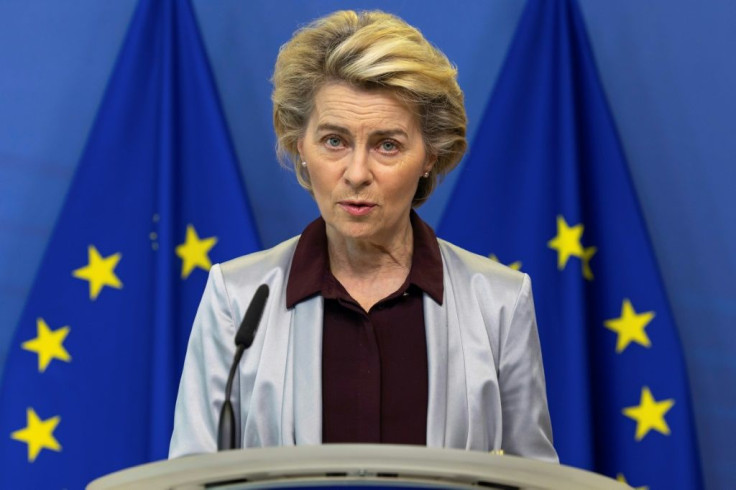Members Worry EU Will Bend As Brexit Talks Run Out Of Road
EU member states on Tuesday warned European negotiators not to lose their nerve in negotiations with Britain, in a rare reproach as post-Brexit talks entered their most delicate phase.
Negotiations in London towards an EU-UK deal are deadlocked -- with some in Brussels now seeing Thursday as a last chance to decide whether a deal is possible before January 1, when Britain will no longer be bound by EU rules.
Failure to clinch a deal would cause deep economic disruption between the two sides, and pressure is high to finalise a zero tariffs, zero quotas accord, especially given the problems caused by the Covid-19 pandemic.
With the clock ticking, the UK government on Tuesday said there was "no time to lose" for businesses to get ready for the end of the transition period with deep changes in store even with a deal.
In an unusual development, EU diplomats expressed concern that the negotiating team led by Michel Barnier was under too much pressure to sign a deal, and at risk of caving in on long-held principles.
The comments were a rare display of disunity on the European side, which has kept a more-or-less united front since Britain voted to leave the EU in a referendum four years ago.
"There is a growing unease among member states that Commission President Ursula von der Leyen, egged on by Germany or not, is doing whatever it takes to get a deal," said an EU diplomat with close knowledge of the talks.
"That is going to have to stop somewhere," the source added, asking not to be named because he was not authorised to speak publicly.
Another diplomat said the European Commission received a "serious warning" from France that it was making dangerous concessions on key negotiating lines "that risked dividing member states".
European Council president Charles Michel will host a summit of EU leaders next week that may see a decision on whether to proceed.
He appeared to address the concerns on member states, telling reporters: "We're making sure that all of the member states are fully involved, committed, kept informed of the very important negotiations.
"We want an agreement to be reached on the future relationship with Great Britain. But we want this agreement to take into account the very important priorities, economic fair play, the governance of the agreement."
The rare criticism was partly directed at Germany, which currently holds the EU's rotating presidency and is the bloc's most powerful and influential member.

"Germany is a key question," the first diplomat said.
It is "perceived as always wanting to keep the bunch together rather than following what is written in the treaty and in this case it still sees Britain as being part of the bunch," he added.
At issue is the main question in the talks: finding some sort of mechanism to guarantee that Britain will remain aligned to a certain degree to EU rules on the environment, labour laws and health.
Known as the "level-playing-field", the condition is paramount for the Europeans, who fear a direct threat to their single market by a country that would not need to play by the same rules.
A European source confirmed that the Netherlands and France were the most vocal in their worry that Brussels might waver, but that the unease was widely shared by the EU-27.
In the final stretch, the level of regulatory coordination being asked by the Europeans remains an object of serious opposition on the British side.
"The prime minister has been clear on the fact that we are leaving the European Union and what that entails for bringing back control for our money, border and laws," a UK government spokesman said.
The last-minute blowback from EU capitals was a further complication in talks that have already shot past several mooted deadlines since late October.
Any deal Barnier brings home from London will need the ratification of EU member states as well as the European Parliament.
A European source close to the negotiations said they had reached their final phase, adding that Thursday this week would be as far as talks could go, deal or no deal.
Another Brussels-based diplomat, however, said they could drag on until December 10, when European leaders hold a summit and might have to approve or veto whatever offer is on the table.
Deal or no deal, ties between the EU and UK will dramatically change with increased red tape in the form of customs declarations and permits replacing the largely seamless transportation of goods between Britain and EU.
British holidaymakers and business travellers also face the prospect of passport queues at border control on both sides of the Channel, and in airports.
© Copyright AFP {{Year}}. All rights reserved.





















